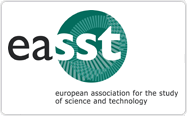Organising Policy-Relevant Knowledge for Climate Action
Integrated Assessment Modelling, the IPCC, and the Emergence of a Collective Expertise on Socioeconomic Emission Scenarios
DOI:
https://doi.org/10.23987/sts.65031Abstract
Greenhouse gas emission scenarios are key in analyses of human interference with the climate system. They are mainly produced by one category of computer models: Integrated Assessment Models (IAMs). We analyse how IAM research organised into a community around the production of socio-economic scenarios during the preparation of the IPCC AR5 (2005-2014). We seek to describe the co-emergence of a research community, its instruments, and its domain of applicability. We highlight the role of the IPCC process in the making of the IAM community, showing how IAMs worked their way to an influent position. We then survey three elements of the repertoire that served to organise collective work on scenarios in interaction with the IPCC and the European Union, and which now frames the community and its epistemic practices. This repertoire needs to articulate epistemic practices with the pursuit of policy relevance, which shows how epistemic communities and patterns of co-production materialise in practical arrangements.





